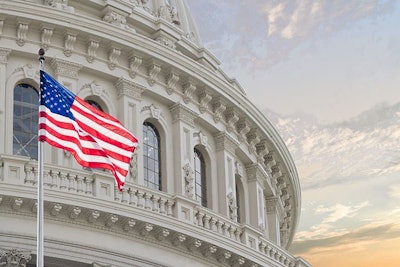
House Judiciary Committee Chairman Jerry Nadler (D-NY) announced Monday that the Marijuana Opportunity Reinvestment and Expungement Act (MORE Act) is scheduled for a Congressional markup and vote on Wednesday, Nov. 20. The news was first reported in Forbes over the weekend.
Nadler quietly introduced the MORE Act in July. Nadler said at the time that H.R. 3884 was aimed directly at the widening inequality gap that persists in the wake of state-by-state cannabis reform measures. “Despite the legalization of marijuana in states across the country, those with criminal convictions for marijuana still face second class citizenship. Their vote, access to education, employment, and housing are all negatively impacted,” he said in a public statement.
U.S. Sen. Kamala Harris (D-CA), a Democratic presidential candidate, introduced companion legislation in the Senate.
As Nadler and Harris wrote in July, the MORE Act:
Decriminalizes marijuana at the federal level by removing the substance from the Controlled Substances Act. This applies retroactively to prior and pending convictions, and enables states to set their own policy.
- Requires federal courts to expunge prior convictions, allows prior offenders to request expungement, and requires courts, on motion, to conduct re-sentencing hearings for those still under supervision.
- Authorizes the assessment of a 5% sales tax on marijuana and marijuana products to create an Opportunity Trust Fund, which includes three grant programs:
- The Community Reinvestment Grant Program: Provides services to the individuals most adversely impacted by the War on Drugs, including job training, re-entry services, legal aid, literacy programs, youth recreation, mentoring, and substance use treatment.
- The Cannabis Opportunity Grant Program: Provides funds for loans to assist small businesses in the marijuana industry that are owned and controlled by socially and economically disadvantaged individuals.
- The Equitable Licensing Grant Program: Provides funds for programs that minimize barriers to marijuana licensing and employment for the individuals most adversely impacted by the War on Drugs.
- Opens up Small Business Administration funding for legitimate cannabis-related businesses and service providers.
- Provides non-discrimination protections for marijuana use or possession, and for prior convictions for a marijuana offense.
- Prohibits the denial of any federal public benefit (including housing) based on the use or possession of marijuana, or prior conviction for a marijuana offense.
- Provides that the use or possession of marijuana, or prior conviction for a marijuana offense, will have no adverse impact under the immigration laws.
- Requires the Bureau of Labor Statistics to collect data on the demographics of the industry to ensure people of color and those who are economically disadvantaged are participating in the industry.
The planned Nov. 20 markup and vote would place the MORE Act further along the Congressional legislative process than any other comprehensive cannabis reform bill in the past. While the U.S. House passed the SAFE Banking Act in September, the MORE Act targets a much wider scope in its provisions.
“It would be a tragic mistake to have the
only marijuana reform bill that passes this Congress be one that solely
benefits the industry, despite both the unprecedented support for legalization
nationally amongst Americans and all the harm that we know federal prohibition
has caused to individuals and communities across this country,” Queen Adesuyi, National Affairs Policy Manager for the Drug Policy Alliance, said in a public statement. “Fortunately, by
ensuring the MORE Act moves forward, several leaders in the House are showing
that they understand that this is a matter of fundamental justice that the US
Congress needs to address.”

























